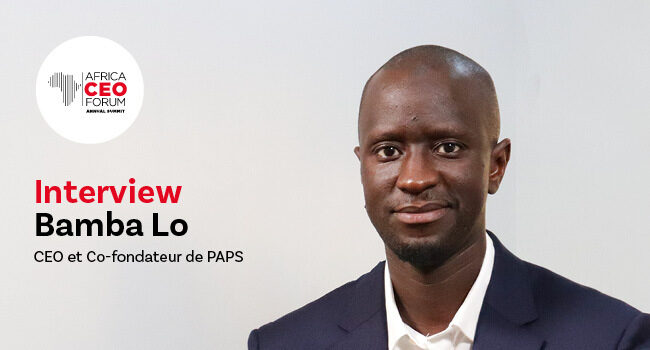
A panel on the financial sector featuring Her Majesty Queen Máxima of the Netherlands, Makhtar Diop and James Mwangi was among the most popular at the AFRICA CEO FORUM.
Mobile phones are no longer a luxury. They are a necessity for people across the continent and have become a vector for development. This notion was shared by all speakers during the panel entitled, “Can technology finally resolve inclusive finance in Africa?”, which was held on Monday, 13 June 2022 at the AFRICA CEO FORUM in Abidjan. The experts at the event highlighted the importance of mobile phones and the Internet in making finance more inclusive for African people. Diane Karusisi, CEO of Bank of Kigali, said that only 8% of people in the past used their mobile phones to save for their retirement. Now, thanks to wider access to technology, 25% of the population contributes to a pension fund using phones. The increase shows the importance of phones in the lives of residents. This is not an isolated case, and many examples can be found across the continent.
It is for this reason that the experts recommend that mobile phones and the Internet are made accessible to improve financial inclusion. With this in mind, Her Majesty Queen Máxima of the Netherlands, who is the UN Secretary-General’s Special Advocate for Inclusive Finance for Development, spoke on the matter of dormant accounts. “There are many dormant phones in Côte d’Ivoire, in particular. There are networks in Abidjan. Generally speaking, these networks also need to be operational in rural areas. Furthermore, there needs to be competition among service providers so that networks can be accessible and affordable”, Queen Máxima added. Makhtar Diop, Managing Director at the International Finance Corporation (IFC), stated that the challenge involves underwater cables from Facebook and Google. Once installed, they will increase Africa’s Internet capabilities tenfold and reduce costs. For this, CEO of Equity Group Holdings James Mwangi recommended that a suite of laws be adopted to encourage the use of mobile phones in the financial sector, as is the case in Kenya. “We have liberal laws that allow banks to use mobile money”, he mentioned. He also stated that investments must be made in start-up companies that can provide innovative solutions. These companies would be better able to offer tailored solutions since they know the realities of their countries.
Mwangi also indicated that consumer protection must be a central point of the laws in order to encourage more people to use mobile phones and the Internet.
In his remarks, he spoke on the importance of financing Fintech companies, as is practised in Kenya, and on awareness-raising efforts so that they can access financing opportunities.
Michael Froman, Vice Chairman and President, Strategic Growth at Mastercard reminded leaders about cybercrimes, which continue to dissuade some people from using the Internet. “Scammers are one step ahead with technology. Measures must be put in place to solve this issue. Nevertheless, cybercrimes should not be a hindrance to total digital inclusion. We should not fear the perpetrators. This is why laws must be efficient”, he said. He also invited policymakers to find appropriate solutions for data protection. This is a concern particularly for Queen Máxima, who stated that a difference must be made between data protection and data ownership. Diane Karusisi added that the matter has been a cause of friction between banks and telecommunications companies. She suggested that a separate entity manage data protection.
Queen Máxima highlighted the fact that women face additional challenges when it comes to financial inclusion and that they should make greater use of mobile phones and the Internet to improve their situations.
Ahua Kouakou



